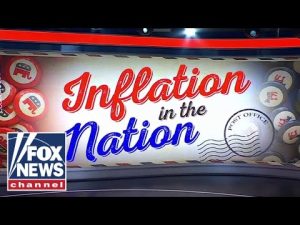As the dust from the recent election settles, many political pundits are buzzing about the significance of President-elect Trump’s victory. They suggest that this might be the perfect opportunity for both sides of the aisle to come together, put past grievances aside, and attend the upcoming inauguration. After all, what could be better for the future of the United States than a little good old-fashioned bipartisan cooperation, right? It’s a fresh start, and it might just give everyone a chance to focus on what really matters: the nation’s well-being.
In a clear sign of changing dynamics, President Trump’s coalition expanded impressively this past fall. His support surged among various groups, including African Americans, Latino Americans, Asian Americans, and even union voters in right-to-work states. With such a wide-ranging base, it seems clear that the election results were not just a mere endorsement of Trump, but a sharp rejection of the previous four years. Voters expressed their dissatisfaction with the economic direction and growing security concerns, particularly regarding border policies. When you look at the numbers, it’s evident that people are eager for change.
Now, as Trump unveils his cabinet nominees, he appears to be driving home that message of change. The names coming forward—like RFK Jr., Tulsi Gabbard, and Kash Patel—signal a departure from the conventional, “run-of-the-mill” politicians that many have grown weary of. Instead, the focus seems to be on bringing in individuals with real-world experience and specialized expertise, which is exactly what the electorate seemed to demand. This fresh perspective could be just what’s needed to shake things up in Washington and get the ball rolling toward real progress.
As Trump navigates the tricky waters of Senate confirmations, there seems to be an absence of strong opposition to his nominees. This could be attributed to a well-laid strategy to showcase their qualifications in one-on-one meetings with senators. It comes as no surprise that the nominees have the potential to knock the socks off decision-makers in these meetings, demonstrating precisely why they were chosen. With several Senate hearings lined up, many individuals will have the chance to dive deeper into the qualifications of these nominees, and the early buzz is positive.
One nominee, in particular, who has weathered significant media scrutiny is Pete Hegseth. Critics have taken aim at him, but Hegseth has stood his ground and presented a compelling case for why he’s suited for his role at the Department of Defense. He is a combat veteran with firsthand experience in Iraq and Afghanistan, a fact that many believe enhances his credibility in making critical defense decisions. After all, who wouldn’t want someone who has been in the trenches, quite literally, making choices about sending troops into danger? With all that he brings to the table, it’s hard to understand why some would doubt his capability.
In a climate where originality and experience are scrutinized, President Trump’s nomination choices signal a broader desire for fresh ideas and approaches. As the political landscape shifts, many are hopeful that this new era can usher in a more united front. As we look toward the inauguration, there is a collective anticipatory breath held across the nation. Can the political scene rise above its often fractious nature and embrace a genuine commitment to cooperation for the betterment of all? Time will tell, but the potential is there, just waiting for the parties to seize the opportunity.







